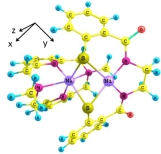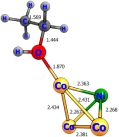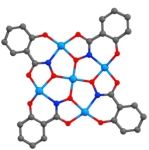报告题目:Classical and quantum computing on magnetic nanostructures
报 告 人:PD Dr. habil. Georg Lefkidis(德国凯泽斯劳滕工业大学)
报告时间:2019年4月24日(星期三),上午10:00
报告地点:bat365在线平台官方网站 六层学术报告厅(致知楼3623)
报告摘要:
As the thirst for computer power is ever-growing and the classical limits of conventional semiconductor electronics are slowly reached, new alternatives are needed. The innovation must happen on two roads: one with respect to the materials (e.g., starting to employ nanostructures), and one with respect to the logic (in other words using quantum logic instead of classical logic). Both paths can meet when magnetic molecules are taken into consideration as building blocks.
In this talk, after a brief introduction to the theoretical aspects of designing nano-spintronic devices, I will introduce some fundamental ideas regarding the logic functionalization of magnetic molecules and nanoclusters. The first-principles separation of laser-induced spin and charge dynamics benefits from the strong electronic correlations in magnetic materials. The Λ process represents a mechanism which allows for the rapid optical manipulation of the magnetic state of realistic molecules bypassing slow dynamical degrees of freedom.
Based on these concepts I will show that the molecular spins can be exploited as input and output bits in a variety of laser-driven, logical processes, going far beyond simple information storage. The systems considered here are realistic and mostly synthesized molecules (Fig. 1). As main examples of functionalities on magnetic molecules I will address the implementation of classical Boolean logic (AND, OR, and XOR gates), the spin-SHIFT register, as well as the ERASE operation by breaking time-reversal symmetry. Additionally, I will briefly mention some new concepts such as mechanically controlled spin dynamics and the inclusion of the molecular rotation.
Last but not least I will discuss the implementation of quantum phenomena, which can lead to new gates (e.g., gate), or the which-path interference, in which the final state of the spin reveals the path followed during the spin-transfer process.



Fig: 1. Some molecular magnets: Left: [NiII2(L-N4Me2)(emb)]+. Middle: [Co3Ni]+EtOH.
Right: (HNEt3)2CuII[12–MCCuIIN(Shi)–4].
报告人简介:
Dr. habl. Georgios Lefkidis received his PhD in quantum chemistry at the Aristotle University of Thessaloniki in 2002 and his Habilitation in theoretical physics at the TUK (Technische Universität Kaiserslautern) in 2016. His main research fields are electronic ab-initio theory of magneto-optics, laser-induced spin and charge dynamics, quantum thermodynamics, and logic functionalization of magnetic nanostructures for logic units and spintronics devices. Till now he has contributed 61 peer reviewed publications (PRL, Nature Physics, PRB et al.), 1 book chapter, and 40 invited talks. Also, he is a referee for several journals (e.g., American Physical Society and Physica Status Solidi).
欢迎广大师生参加!
bat365在线平台官方网站
2019年4月19日
